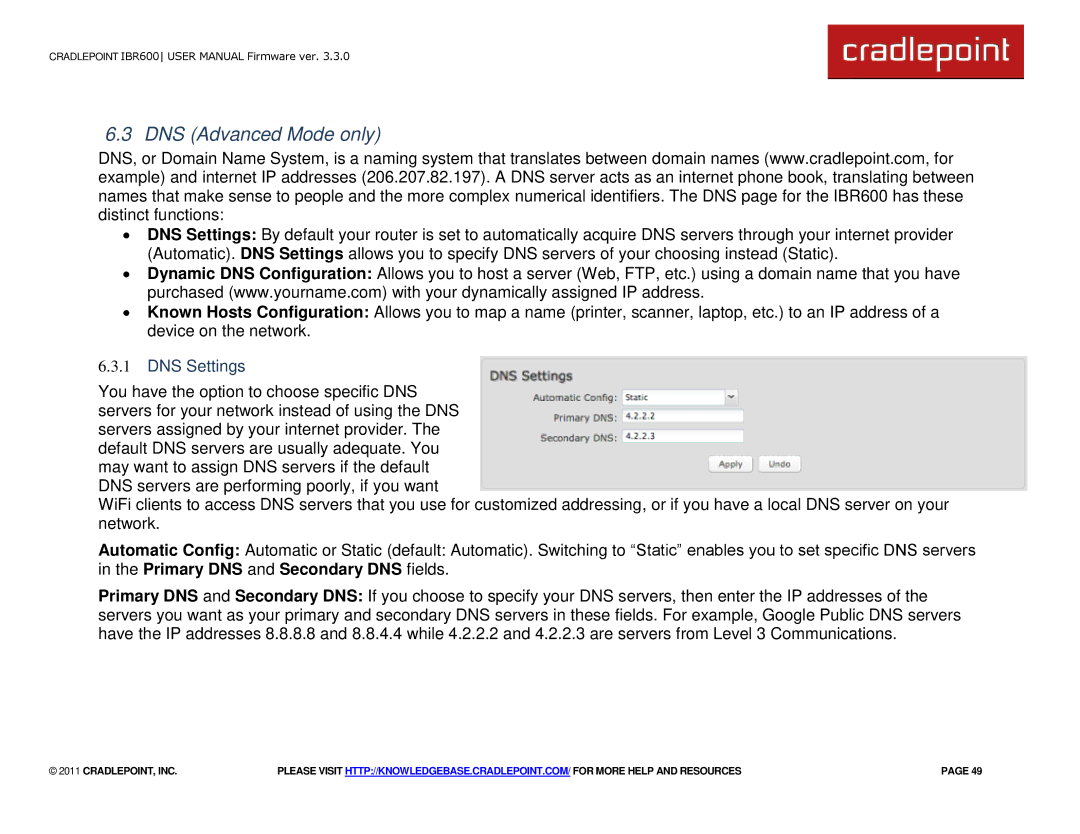
CRADLEPOINT IBR600 USER MANUAL Firmware ver. 3.3.0
6.3 DNS (Advanced Mode only)
DNS, or Domain Name System, is a naming system that translates between domain names (www.cradlepoint.com, for example) and internet IP addresses (206.207.82.197). A DNS server acts as an internet phone book, translating between names that make sense to people and the more complex numerical identifiers. The DNS page for the IBR600 has these distinct functions:
∙DNS Settings: By default your router is set to automatically acquire DNS servers through your internet provider (Automatic). DNS Settings allows you to specify DNS servers of your choosing instead (Static).
∙Dynamic DNS Configuration: Allows you to host a server (Web, FTP, etc.) using a domain name that you have purchased (www.yourname.com) with your dynamically assigned IP address.
∙Known Hosts Configuration: Allows you to map a name (printer, scanner, laptop, etc.) to an IP address of a device on the network.
6.3.1DNS Settings
You have the option to choose specific DNS servers for your network instead of using the DNS servers assigned by your internet provider. The default DNS servers are usually adequate. You may want to assign DNS servers if the default DNS servers are performing poorly, if you want
WiFi clients to access DNS servers that you use for customized addressing, or if you have a local DNS server on your network.
Automatic Config: Automatic or Static (default: Automatic). Switching to ―Static‖ enables you to set specific DNS servers in the Primary DNS and Secondary DNS fields.
Primary DNS and Secondary DNS: If you choose to specify your DNS servers, then enter the IP addresses of the servers you want as your primary and secondary DNS servers in these fields. For example, Google Public DNS servers have the IP addresses 8.8.8.8 and 8.8.4.4 while 4.2.2.2 and 4.2.2.3 are servers from Level 3 Communications.
© 2011 CRADLEPOINT, INC. | PLEASE VISIT HTTP://KNOWLEDGEBASE.CRADLEPOINT.COM/ FOR MORE HELP AND RESOURCES | PAGE 49 |
